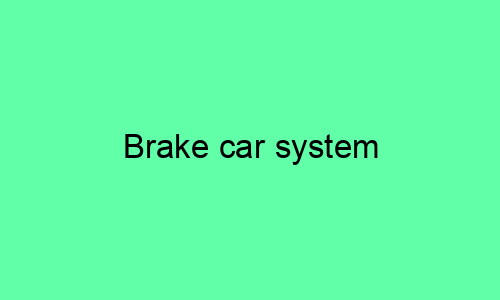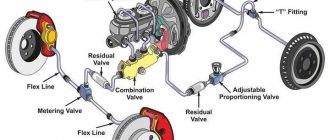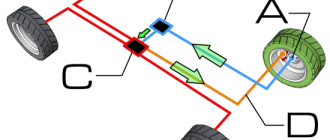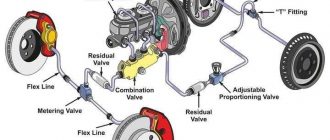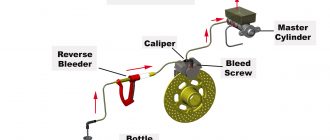Brake Car System
Introduction
The brake car system is a crucial component of any vehicle, as it is responsible for slowing and stopping the vehicle. It consists of several components that work together to create friction, which is what slows the vehicle down. The main components of a brake car system include the brake pedal, master cylinder, brake lines, brake calipers, and brake pads.
How Brake Car System Works
When the driver presses the brake pedal, it activates the master cylinder. The master cylinder then sends brake fluid through the brake lines to the brake calipers. The brake calipers then use the brake fluid to push the brake pads against the brake rotors, which are attached to the wheels. The friction between the brake pads and rotors slows the vehicle down.
Types of Brake Car Systems
There are two main types of brake car systems: hydraulic and mechanical.
* **Hydraulic brake systems** use brake fluid to transmit force from the master cylinder to the brake calipers. Hydraulic brake systems are the most common type of brake system in use today.
* **Mechanical brake systems** use a mechanical linkage to transmit force from the master cylinder to the brake calipers. Mechanical brake systems are less common than hydraulic brake systems, but they are still used in some older vehicles.
Advantages and Disadvantages of Brake Car Systems
**Hydraulic brake systems** offer several advantages over mechanical brake systems, including:
* **Greater stopping power** – Hydraulic brake systems can generate more stopping power than mechanical brake systems.
* **More precise control** – Hydraulic brake systems allow the driver to more precisely control the amount of braking force applied.
* **Less maintenance** – Hydraulic brake systems require less maintenance than mechanical brake systems.
However, hydraulic brake systems also have some disadvantages, including:
* **More expensive** – Hydraulic brake systems are more expensive to purchase and install than mechanical brake systems.
* **More complex** – Hydraulic brake systems are more complex than mechanical brake systems, which can make them more difficult to repair.
**Mechanical brake systems** offer several advantages over hydraulic brake systems, including:
* **Less expensive** – Mechanical brake systems are less expensive to purchase and install than hydraulic brake systems.
* **Simpler** – Mechanical brake systems are simpler than hydraulic brake systems, which can make them easier to repair.
However, mechanical brake systems also have some disadvantages, including:
* **Less stopping power** – Mechanical brake systems can generate less stopping power than hydraulic brake systems.
* **Less precise control** – Mechanical brake systems allow the driver to less precisely control the amount of braking force applied.
* **More maintenance** – Mechanical brake systems require more maintenance than hydraulic brake systems.
Brake Car System Maintenance
It is important to regularly maintain your brake car system to ensure that it is funcionando properly. Some of the maintenance tasks that you can perform yourself include:
* **Checking the brake fluid level** – The brake fluid level should be checked regularly and topped off as needed.
* **Inspecting the brake pads** – The brake pads should be inspected regularly for wear and tear. If the brake pads are worn down, they should be replaced.
* **Lubricating the brake calipers** – The brake calipers should be lubricated regularly to prevent them from seizing.
If you are not comfortable performing any of these maintenance tasks yourself, you can take your vehicle to a mechanic to have them performed.
Conclusion
The brake car system is a crucial component of any vehicle, and it is important to keep it in good working condition. By following the maintenance tips outlined in this article, you can help extend the life of your brake car system and keep your vehicle safe.
